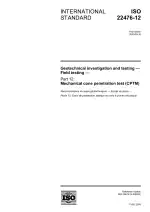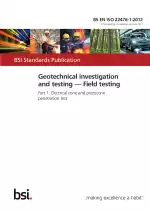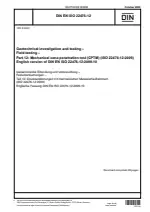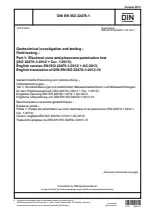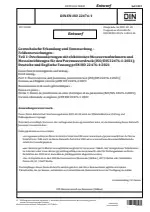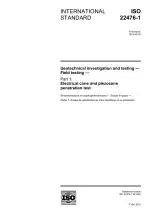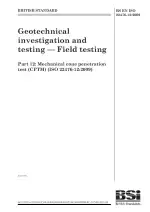Geotechnical Investigation and Testing - Field Testing - Part 12: Mechanical Cone Penetration Test (CPTM)
Also Known As:
ISO 22476-12:2009 is a standard that outlines the requirements for conducting a mechanical cone penetration test (CPTM). This test is used for geotechnical investigations and involves the use of specialized equipment to measure the resistance of soil as a cone penetrates the ground. The standard provides guidelines for the execution and reporting of the test, ensuring consistent and reliable results.
The mechanical cone penetration test is particularly useful for determining the soil profile, either on its own or in combination with other in situ tests. It can provide qualitative and quantitative data on stratification, soil types, and various geotechnical parameters such as density, shear-strength, deformation, and consolidation characteristics. This information is valuable for assessing the properties and behavior of the soil, which is crucial for engineering and construction purposes.
ISO 22476-12:2009 specifies several important features of the test, including the type of cone penetration test to be used, the application class, the penetration length or depth, and the location of the test relative to a fixed reference point. The standard ensures that these parameters are clearly defined and consistent, allowing for reliable interpretation and comparison of test results.
| Edition | 1 |
| ICS Codes | 93.020 - Earthworks. Excavations. Foundation construction. Underground works |
| Language(s) | English |
| File Size | 430.1 KB |

